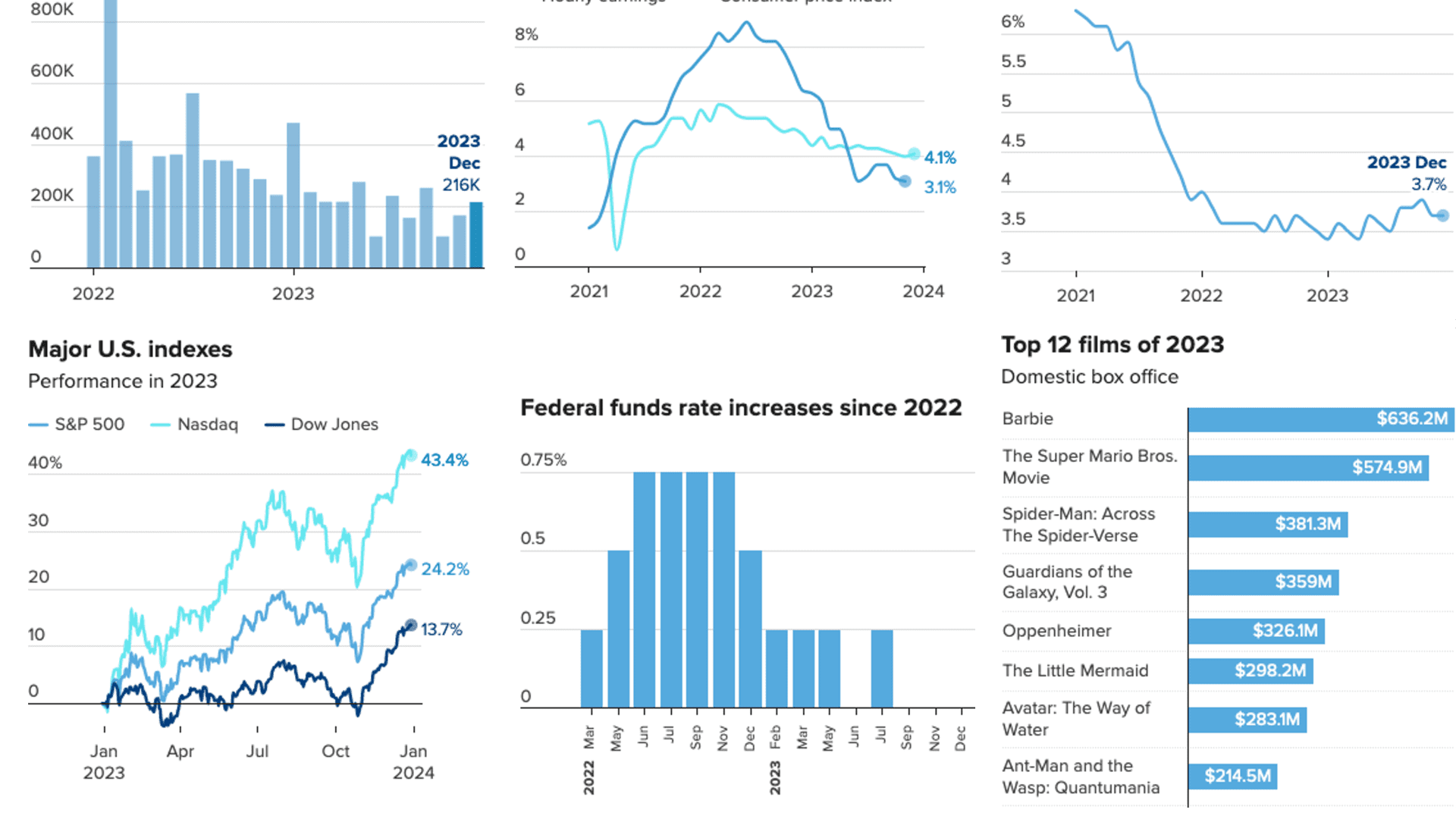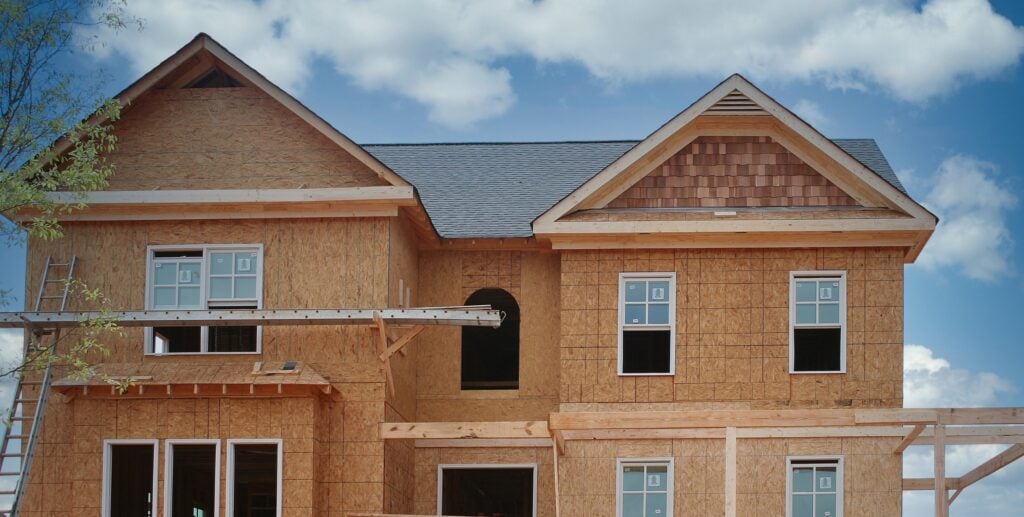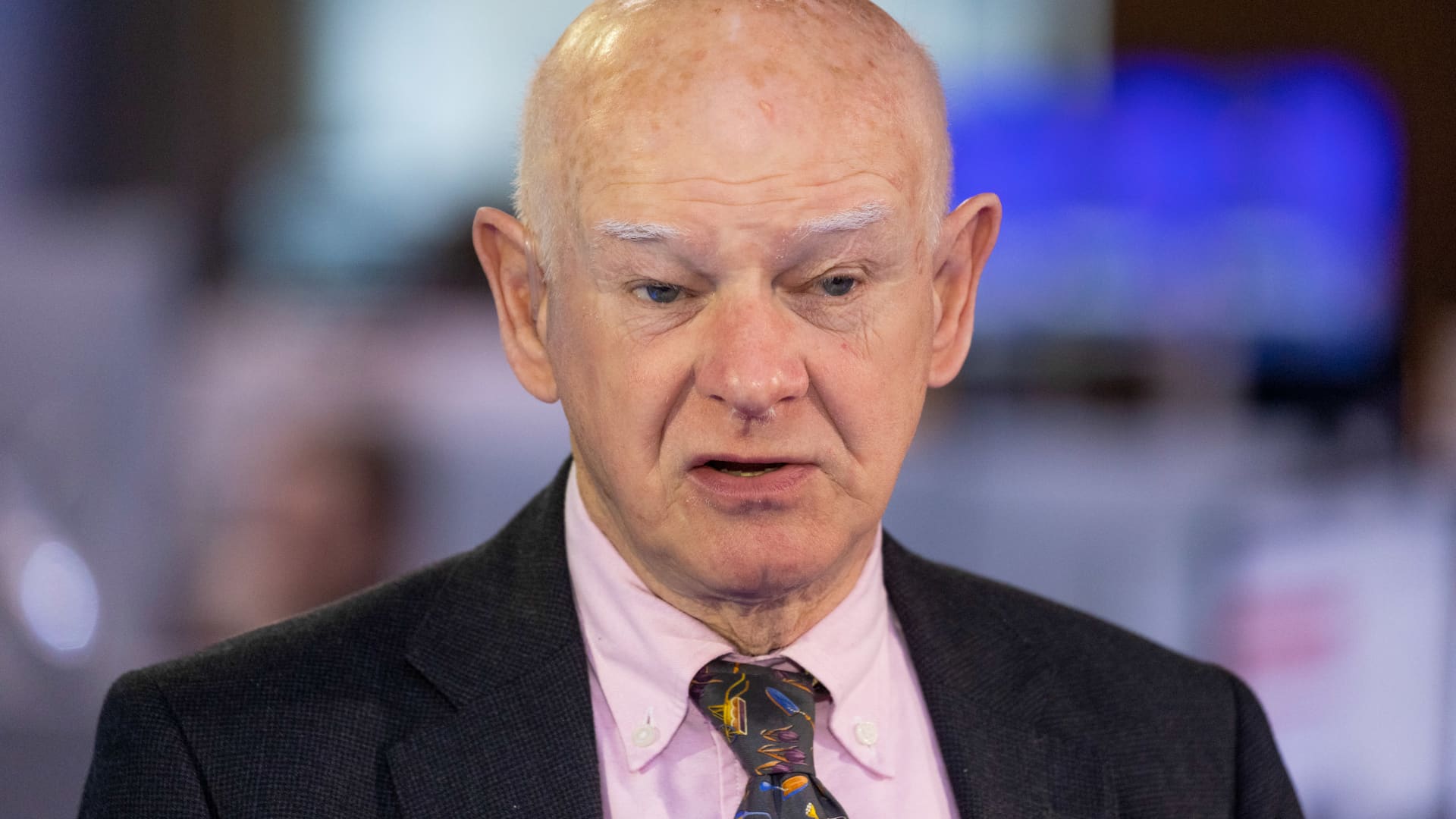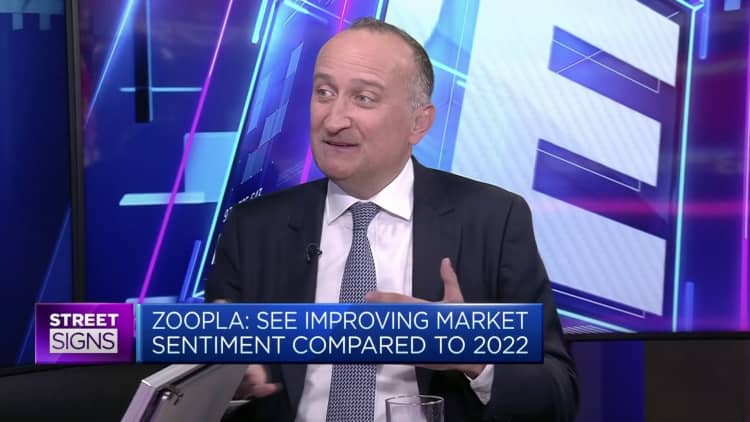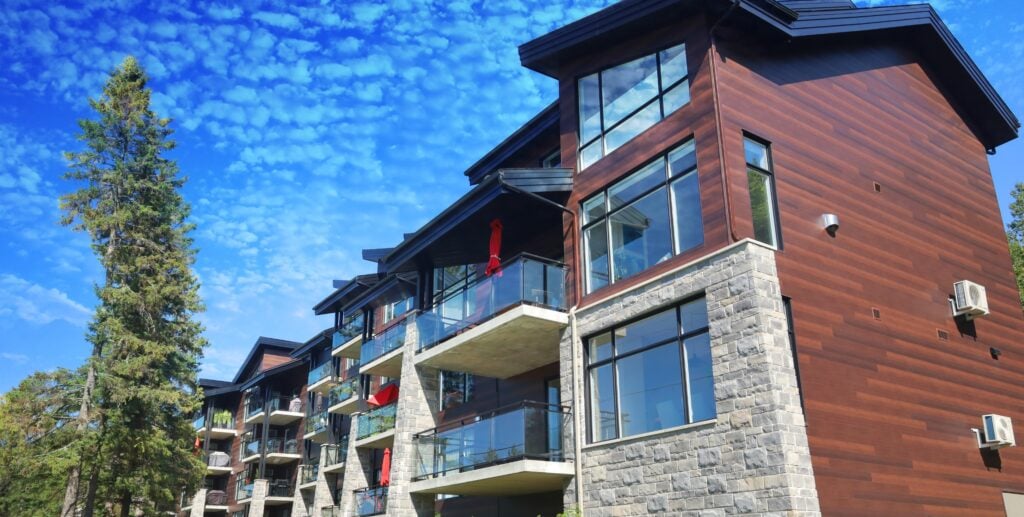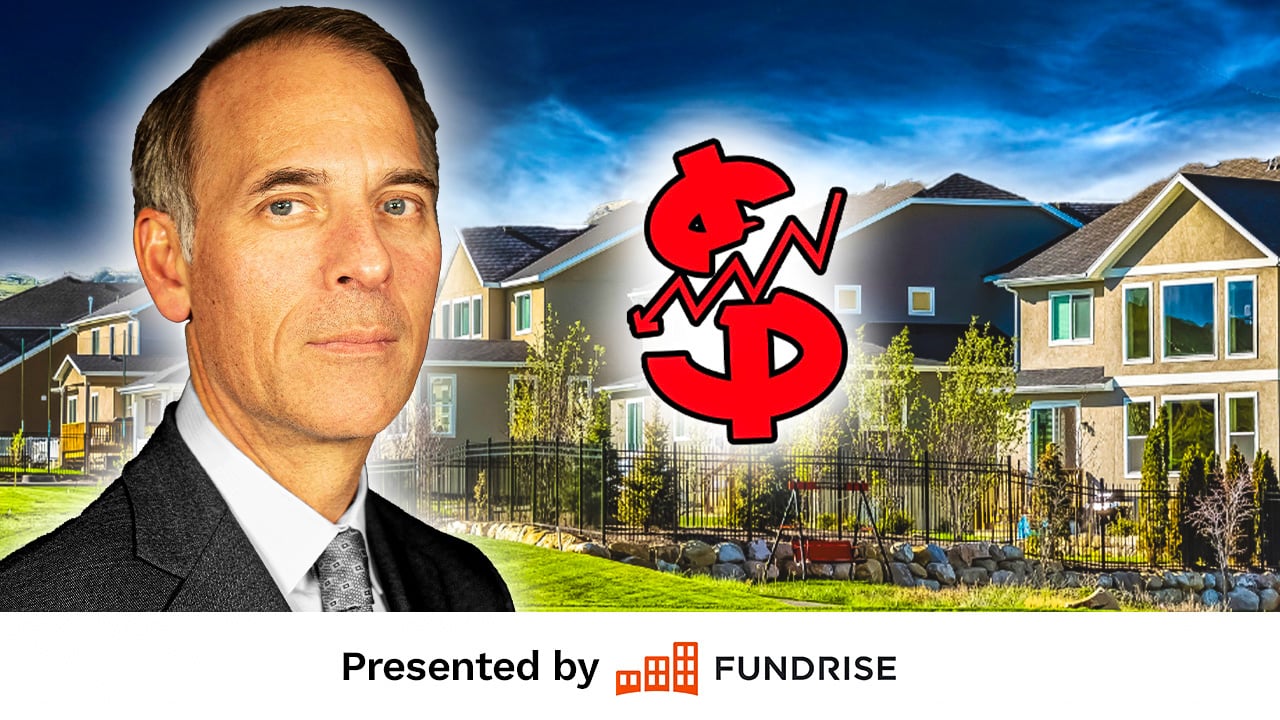Dave:
Hey everyone, welcome to On The Market, I’m your host, Dave Meyer. And listen everyone, after you hear today’s episode, I don’t ever want to hear again that data or economics or finance is not interesting because we have an amazing conversation and an amazing guest today, Mark Zandi, who is a very well-known American economist. He’s the chief economist of Moody’s Analytics, and I look forward to talking to Mark every time we have the great opportunity to have him on the show. He makes really complicated topics very easy to understand, and I really love just how humble he is about his remarkable success as an economist. But he also gives it to you straight. He tells you which data points are important, which ones are unreliable, which should be ignored altogether, and it really helps you cut through a lot of the clutter and make sense of what’s going on in the complicated economy.
Today, we talk a lot about the labor market and I learned several things that I never knew from Mark. We also get into immigration, what happens in the economy in an election year, and we also talk about the housing shortage and some of Mark’s ideas on how we could restore some affordability to the housing market. So we have a great show for you, and with no further ado, let’s bring on Mark Zandi from Moody’s Analytics.
Mark Zandi, welcome back to the podcast. Thanks for being here.
Mark:
Thanks, Dave. It’s good to be with you.
Dave:
For those of our listeners who are new or didn’t hear your last episode, can you just tell us a little bit about yourself and your career at Moody’s?
Mark:
Sure, I’m the chief economist of Moody’s. I joined Moody’s a while ago now, 15, 16 years ago. I sold a company that I had formed in 1990 to them, and I’ve been with them ever since. So I’ve been a professional economist for, hard to believe, but over 30 years. I’ve seen a lot of ups and downs and all arounds.
Dave:
When you were here on the show last time, we ended with this term that you had coined, the slow session, that you had been using to describe the economy. Can you remind us what a slow session is and if your thoughts about it came to fruition?
Mark:
Yeah, slow session, and you can look it up in Google. You can Google it. There’s a URL there that one of my colleagues purchased. Yeah, for nine bucks a year apparently so not bad. Slow session, not a recession. So the economy isn’t contracting, going backwards, but an economy that’s not going anywhere quickly, a slow session. I’ll have to say, 2023, of course not over yet, but pretty darn close is going to turn out to be a lot better than a slow session. Not only did we avoid a recession like we thought, but it was a really good year in terms of growth.
GDP is what economists use to gauge the broader health of the economy, that’s the value of all the things that we produce. That’s going to grow 2.5% on a real after-inflation basis in the year, and that’s a good year. I mean typically think of 2% as the benchmark. You get 2%, you’re doing just fine, especially when unemployment’s so low, when sub 4%. 2.5%’s great. So it turned out to be a much, much better year than certainly most people feared and even better than I had expected.
Dave:
What do you attribute that resilience to?
Mark:
A bunch of stuff, but there’s a list, but I put at the top of the list the supply side of the economy really surprised, meaning we got a lot more productivity growth during the year. We can peel that onion back too if you want, but productivity came back to life. One thing that might be going on is all those people who quit their jobs back a couple, three years ago, they’ve now taken on jobs that they think better of, they’re more suited to their talents and skills and they’re better paid and they’re happier. And we can see that in surveys and that probably translates through to higher productivity, but remote work might be playing a bit of a role. I think it’s way too early for AI, but that may play a role down the road.
The other big thing is labor force growth. A number of people out there working and looking for work. That has been very strong surprisingly, and part of that’s just more participation, more people are coming back into the workforce. Participation rates aren’t quite back to pre-pandemic, but they’re higher than I would’ve thought they would’ve been if there had been no pandemic, just because the retiring baby boom generation and then immigration has been boom-like, and of course that poses a whole slew of questions and challenges. But one of the benefits of that is you’ve got more folks out there working and looking for work, and that adds to growth. So because the supply side of the economy grew more quickly, surprisingly so, that allowed the GDP the amount of stuff that we produce to grow more quickly without any inflation, with inflation coming back in. So I can wax on, but that’s I think a high level the most important factor resulting in the surprisingly good economy.
Dave:
Great. Let’s dig into that a little bit more because you mentioned a couple things I think that are going to be really interesting for our audience. One of them was about labor force growth. During the pandemic, we saw a lot of people leave the workforce, and as you said, it’s starting to come back. You also mentioned that immigration is fueling a lot of the labor force growth. Is that legal migration, illegal migration, a combination of both?
Mark:
It’s got to be a combination of both. Certainly the former, legal immigration is up. I mean, that got crushed during the pandemic for lots of obvious reasons and that’s made its way back. That’s certainly adding to a number of folks out there working. But I do think we’ve seen, it’s clear we’ve seen a surge in undocumented workers now and I’m sure that’s adding to jobs and payroll and labor force. But here’s a technical point. These estimates, these numbers are based on surveys and if the Bureau of Labor Statistics, the keeper of the survey goes to someone who’s undocumented and say, “Are you working?” I’m pretty sure that undocumented worker may not want to respond to the survey. So I’m sure undocumented workers are finding their way into the workforce and adding to labor force, but I’m not so sure how much of that is behind these really good numbers that we’re observing.
Dave:
Got it. So in the numbers and the data that you provide in your report, which comes from the Bureau of Labor Statistics, that is mostly reflecting legal migration, but there might be even more labor force growth it sounds like that is not measured by traditional methods.
Mark:
Got it, exactly. The data is imprecise representation of reality and all data is an imprecise representation of reality. In this case, it’s quite imprecise. And my guess is my sense is that we’ve seen very strong labor force growth of strong immigration, but it’s probably been even stronger than we think it is in the data that we’re observing.
Dave:
That’s super interesting. I mean, one of the questions I’m constantly wondering about is when you look at the total number of job openings in the United States right now, it’s come down a little bit over the last couple of months, but it’s still I think eight and a half million, somewhere around there, pretty high. And even if, from my understanding, correct me if I’m wrong, even if we got back to pre-pandemic levels of labor force participation, it still wouldn’t fill the need or fill all of those jobs. Is that correct?
Mark:
Yeah, that’s the arithmetic, but I’m not sure that’s reality. I’m not sure I believe in those unfilled positions. Okay, now I’m going to speak to you as an employer. I hire lots of people, I employ lots of people.
Dave:
Yeah.
Mark:
I’ve got a couple hundred economists around the world in my world reporting up to me. And what’s happened is it’s costless to open up a position and you just leave it there, it doesn’t mean you’re going to hire anybody. You could slow walk that forever, and that’s what I think is going on here. I think it’s not like you’re getting dinged for having that open position. And here’s the other thing, if you work in a big company, a multinational like I do, the human resource function is a machine. It’s a very complex machine and apparatus. You really don’t want to shut that thing down, because once you shut it down, to get it back up and running is going to be incredibly painful. So you keep it running, but less than full force and that’s what’s going on here I think in a lot of companies.
So those open positions don’t mean what I think people think they mean, which is interesting because the economics profession, if you go back a couple, three years ago, there was this whole, even sooner, more recently than that, smart folks were saying, “Oh, we’ve got to have a recession. We’ve got all these open positions. That means the labor market was really tight. The only way we’re going to get cool the labor market off and get inflation back down is by jacking up interest rates and pushing the economy into recession.” So they pinned a lot of that view on all these open positions, but without actually, I think understanding. And I guess you wouldn’t really understand unless you’re actually a business person doing this, doing it actually that there isn’t as many open positions out there as people think there are.
Dave:
That is a great take and one I haven’t heard before, but makes total sense because you hear a lot right now about the concept of labor hoarding where people basically businesses don’t want to lay off employees or more hesitant to lay off employees than they were in the past because how the labor market was especially two years ago or whatever. And this seems like an extension of that almost where people might be opportunistic. You post a job and if someone fantastic comes along that you would love to have a couple years from now, you would take advantage of that, but you’re not necessarily eager to fill any of these positions with any sort of urgency.
Mark:
You nailed it, that’s exactly right. And you just want to keep those resumes coming in, you want to take a look, you might have a conversation or two, but it doesn’t mean you’re actually going to hire that person sign on the dotted line and I think that’s a lot of what’s going on here. And in times past that was less the case. Before online job matching and searching companies, if they had an open position, they had to go to the newspaper and put a help wanted ad, and now it’s expensive. Probably people don’t realize this, but if you go back in the day, probably 25 years ago, New York Times was a big client of mine, and they made a fortune on help wanted advertising. It was like, I don’t know, crack cocaine margins. I mean, it was incredible business.
The newspapers were the single most profitable industry on the planet. The pharmaceuticals were a close second, but the newspapers were number one, and that’s because the cost of doing that. But for the business person, that was costly. So if you weren’t actually going to hire somebody in any reasonable timeframe, you wouldn’t keep posting online. I mean, excuse me, you wouldn’t keep posting help wanted, right? You wouldn’t put it in the newspaper, but online costs are, if there is any costs, there’s some if you go LinkedIn I guess, or some other job searching sites, but it’s relatively modest in the grand scheme of things.
Dave:
So given that, and we talk about this on the show quite a lot, there’s a lot of different labor market data, none of it perfect as you pointed out, but when you look at the big picture, the aggregate of all the information you look at, Mark, what are your feelings about the strength of the labor market right now?
Mark:
I feel great about the labor market. I mean, it’s rip-roaring. It’s sub 4% unemployment for two straight years. Last time that happened was in the 1960s, and that’s the only other time in history I think that that’s been the case. Lots of jobs, job growth is moderating, but that’s by design because the Fed’s trying to cool things off and get inflation back in the bottle. Wage growth is good. There’s lots of different measures, but if you look at the plethora of the data, it says 4% wage growth and that now is higher than the rate of inflation. If you look at wage growth across all wage tiers across the wage distribution, low wage workers, high wage workers, everyone is getting wages that are increasing at a rate that’s faster than the rate of inflation. That’s been the case now for all of 2023, so that’s all really good.
Probably the best thing, quit rates have come in, which is I think consistent with the moderation and wage growth and that’s probably good because that was things were getting heated. Hiring has come in, it’s more consistent with pre-pandemic, but really, and you mentioned this in the context of labor hoarding, really important thing is layoffs remain very, very low. I mean, we’re talking today on a Thursday in December, we get the unemployment insurance claims data, which is a read on the number of people that lost their job and say, “Hey, can you help me out?” And get a check. That remains extraordinarily low, close to 200,000 per week, which that’s consistent with a rip-roaring labor market. So if you wanted to pick one part of the economy to highlight how well things are going, it is the job market. It is very good. And it’s across industry, it’s coast to coast. It’s not like one part of the country’s doing great, another part’s not. It’s uniformly the case across the country.
Dave:
I think that’s really important because there are a lot of high profile or when a big tech company lays people off that makes the news and I think that distorts a lot of the underlying data about what’s going on with the labor market that although some of the big companies were laying off maybe six months or a year ago, that overall that is not really the case. Initial claims, as you said, Mark, are extremely low. Continuing claims I think are going up a little bit but are still low in historical context, so it shows a lot of strength. Mark, given what you said about the labor market, can you tell us a little bit more about your outlook for this year, 2024?
Mark:
I’m positive, I’m upbeat. We may not get the same kind of growth in ’24 that we got in ’23, but that’s okay. Get GDP growth around two, that’s very consistent with a good solid year, help create a lot of jobs and at least certainly enough jobs to keep unemployment at or around 4%. So it should be a good year. I mean the key to the economy obviously is you and I is consumers, Dave, if we keep spending, particularly if you keep spending, it’s key that you keep spending.
Dave:
Me personally, I’m doing a very good job of it.
Mark:
Although you’re in Amsterdam, you’re not going to help out the US economy from Amsterdam.
Dave:
Oh, I come in hot every time I come visit though. I’m going skiing, I’m doing fun stuff, don’t worry about it.
Mark:
We need those dollars. But as long as the consumer hangs tough and does their thing and spend, not with abandon but just enough, we’re good. We’re golden because they drive the economy, and all the forces that influence consumer spending look pretty good. We talked about jobs, we talked about wage growth higher than the rate of inflation. We talked about unemployment. The stock market’s at a near record high. Housing values, they’ve gone flattish, but they’re way up from where they were just a few years ago. Lower income households are under more financial pressure and they have taken a bigger hit from the previously higher inflation, and so they have borrowed against their credit cards and taken on consumer finance loans and are now paying a lot more in interest because of the higher rates.
But middle income and high income households, they have not borrowed, and they have done a really good job of locking in the previously low record interest rates through various refinancing waves. The average rate on an existing mortgage is 3.5% so that gives you a sense of, it’s amazing. So people are really insulated from the higher rates, and then there’s still a fair amount of excess saving that got built up during the pandemic. Again, high income, high middle income households have most of that, and households are sitting in their deposit account as cash and they call on it when they need it and have used it to supplement their income.
So if you add up all the things that drive consumers and their spending behavior, it all looks pretty good. Certainly consistent with the idea that they’ll hang tough, stay in the game and allow the economy to move forward without suffering a recession. Now, obviously a lot of risk, a lot of things to worry about. There always is. The thing that makes ’24 unique is because we have an election coming, and we could talk about that if you want, but that does pose some potential threat given just how fractured our politics are. But abstracting from the things that are low probability, the most likely scenario is that we have another reasonably good year.
Dave:
I do want to get into the political question, but before we do it, I just would love your opinion, given your belief that there is remaining strength in the US economy, how do you feel about the Fed’s recent, I don’t know if you really call it a pivot, but their more dovish approach in the last couple of weeks?
Mark:
I’m all for it, I think it makes a lot of sense. I was perplexed back previously when they still thought they’d raise rates in 2023. I thought that made a lot less sense to me in the context of fading inflation, everything suggested that they could pause, and now they’re forecasting three-quarter point rate cuts in 2024. That makes sense in the context of inflation moderating and all the trend lines there look really good. It feels like by this time next year we’ll be within spitting distance of the Fed’s target without any rate hikes and some rate cuts. The only thing that’s keeping inflation from its 2% target, the Federal Reserve has a target of 2% on one measure of inflation, is the growth in the cost of housing services.
And that goes back to rents. And as you know, Dave, rents have gone flat to down for the past year, and so that’s going to translate through in the slower growth and the cost of housing services over the next year. And as that happens, overall inflation is going to get back in the bottle so to speak. So I forecast lots of stuff, some things I’m confident in, some not so much. Inflation coming back to target by this time next year, if we have this conversation next year, and I’m on the record here now, I feel confident in that. I think that’s very likely to happen. Stuff could occur, but that’s very likely to happen. And if so, that would be consistent with rate cuts so I’m all on board with that.
Dave:
I certainly hope you’re right. And I do just want to take a minute to explain something that Mark just said, which is rents have been one of the main things that have been keeping one of the main headline inflation indicators that you hear about, the Consumer Price Index, up over the last couple of year or so. But the way that it’s collected for the CPI lags quite a bit. And so that is why we see inflation numbers reflecting higher rent. Whereas if we look at some of the data I look at or a lot of the private sector data into rents, you see as Mark said, they have been flat or even fallen in some markets. And so the Fed, even though the CPI uses this older historical data, they can see from private and other data sources that the rent pushing up inflation is likely to end. So that is, I believe, Mark a big basis of your hypothesis about inflation coming down.
Mark:
Yeah, you explained that very well, Dave. That’s exactly right. Yep, exactly right.
Dave:
Thank you. You mentioned.
Mark:
A, A+.
Dave:
I appreciate that, I’ll take it.
Mark:
I’ll put my professor hat on.
Dave:
You mentioned that an election year could influence the economy. Can you tell us a little more about your thinking on that subject?
Mark:
Well, I do worry about our fractured politics, they are a mess. I think it’s likely that the election is going to be close. Feels like it’s going to be former President Trump against current President Biden again. Obviously, a lot of script to be written over the course of the next few months and the year, but that feels like the most likely scenario and that argues that it’s going to be a very close election. And if it’s a close election, when I say close, it’s going to boil down to 5, 6, 7 states. It probably boils down to one county, two counties in each of those states because at the end of the day, it’s really about, I live in Pennsylvania. That’s a swing state, and the swing county is Chester County, the county I live in because it’s a suburban county, it’s a purplish county.
In fact, I joke my wife is going to determine who’s going to be the next president because we live on a circle. The circle is a mile in length in Chester County, and it’s some legacy farmers and folks you think are Republican. And then you’ve got a bunch of newbies, Vanguard employees because we live very close to Vanguard and got less Vanguard executives coming in and they are more progressive Democrat. In fact, I could go on and on about my neighborhood. It’s a story in and of itself.
Dave:
But the way the elections have gone recently, it really could come down probably not to one vote, but you do see these hugely impactful counties or states coming down to fractions of a percent of the total population. So I agree that, obviously we’re a long way away. We’re still 11 months away, but it does seem like it will be a close election.
Mark:
The point is it’s going to be close, and if it’s close, it’s going to be for sure going to be contested. If it’s contested, well, that could be messy, and I think that’s a threat to sentiment which is already pretty fragile. And at the end of the day, a recession is a loss of faith with sentiment. As fragile as it is, if it takes another knock, people could pack it in. The consumer doesn’t do what I expect and we don’t have the year I expect.
Dave:
I got it, okay. So it’s not necessarily that there’s historical precedent that during an election year.
Mark:
No.
Dave:
The economy behaves one way or another. It’s more just given the political realities right now there’s just more chance for, yeah. There’s just more chance for a surprise I guess, or a loss of faith like you said.
Mark:
Maybe it won’t be a surprise because we’re all talking about it already.
Dave:
Fair.
Mark:
But one of the fundamental strengths of the American economy is the stability of government, the political process, the rule of law. And if that’s shaken, challenged, then that goes to the core of what makes the US economy exceptional, and it is exceptional. And so that poses a threat to economic growth in the coming year. And of course even after that longer run.
Dave:
I’d love to turn a little bit towards our focus here of the show on the housing market. In your report, you detail some interesting information about the housing shortage. We’ve talked about this, but probably not for a while on the show. Can you just tell us a little bit about the nature of the housing shortage in the United States?
Mark:
Yeah, we don’t have enough homes. Particularly affordable homes, both for rent and for homeownership, and this happened in the wake of the financial crisis, the bust. I mean, housing seems to be always at the center of our economic problems, I don’t know why. But before, the financial crisis 15 years ago, the problem was overbuilding. Builders put up too many homes, vacancy rates soared, and that was the basis for the collapse in the housing market that occurred in the crisis, 2008, 2009 into 2010, house prices fell 2020 5% peak to trough depending on the index. The bottom really wasn’t until 2011.
That wiped out a lot of builders. It was such a wipe out crash, it wiped out builders, it wiped out a lot of infrastructure for building. It also raised the cost of building because a lot of local governments that rely on property tax revenue got nailed by the fall in housing values and so then they jacked up fees on permits in construction. And so the fixed cost for building rose very sharply in that period. And so that’s really made it difficult to ramp up homebuilding, particularly for lower priced homes that have lower margins, again, the builder has to cover those higher fixed costs. And it really wasn’t until right before the Fed started raising interest rates that homebuilding seemed to have gotten back to where it needs to be, not to solve the shortage, just simply to ensure that it wasn’t going to get any worse, that we were putting on enough homes to meet the underlying demand.
And by the way, going back to the point about immigration, underlying demand may even be stronger than we anticipate because we’ve got all these immigrants coming into the country, and we probably much more than we think, and it’s adding to the problems at the affordable part of the market and then adding to our homelessness issues and that kind of thing. But if you do the arithmetic, and so right now we have a vast shortage. The vacancy rates are low, the homeowner vacancy rate is at a record low, and we’ve got data back until just after World War II. By my calculation, we’re short by about 1.7 million homes both for rent and for homeownership. Increasingly, it’s less of an issue on the rental side, more of an issue on the homeownership side.
So this just exacerbates the problems potential first-time home buyers have getting into the market. They have this shortage of homes, lots of other things going on, high mortgage rates, high house prices, soft income growth and that just adds up to a world of I can’t afford anything, I’m just locked out of this market. I think it’s one of the key reasons why even though the economy’s good, people don’t think it is, many people don’t because they’re paying more for lots of stuff and one thing that younger people in their thirties and forties know is it’s going to be, unless something changes here, unless mortgage rates come in and the house prices weaken a bit, they’re not going to be able to afford to become a first-time home buyer anytime soon.
Dave:
Yeah, it definitely impacts sentiment for sure. And like you said, it doesn’t seem like there’s an immediate fix. I did have a couple of questions for you to follow up. One of the things I look at quite a lot is that there’s been a lot of multifamily housing for rent, rental units being built in the US over the last couple years. And there’s some evidence that in certain markets there is an oversupply. If you look at absorption rates, they’re turning negative. So how do you square those two things? On one hand, we don’t have enough housing. On the other hand, we’re a little bit oversupplied. Can you help make sense of that?
Mark:
Yeah, the oversupply you talk about is entirely at the high end of the multifamily market. It’s these big apartment complexes that are going up in big urban centers. I live in Philly. If you go down to downtown Philly, massive projects, luxury apartments that are going in. That part of the market is oversupplied. Vacancy rates are rising and rents are flattening out there coming down in many. I say Philly, but that’s symptomatic of what’s going on in DC, New York, Boston, Chicago, Seattle, San Francisco, LA, lots of markets around the country.
Dave:
Oh, yeah.
Mark:
So they’re no problem. It’s really in the affordable rental for people that have lower income. It’s not lifestyle rental. Some people want to rent, it’s a lifestyle. I want to live in an urban center and I have that lifestyle and therefore I’m going to rent. This is rental because of necessity. I have no choice. I can’t afford to own a home, I have to rent. And it’s that part of the market where the shortages are more severe. And by the way, if I exclude the high-end rental, the shortage is even greater than 1.7 million units obviously. That 1.7 million is for the entire market. If I exclude that, the shortage is probably two and a half million, something along those lines, even much worse.
Dave:
So it’s similar to something we see with the purchase market, which there’s just seems to be a mismatch between the product available and what demand is. We don’t build a lot of small homes or first-time home buyers anymore that are affordable and seems like a similar thing happens in the rental market as well.
Mark:
Yeah, exactly. Exactly, it’s the same dynamic playing out. The entry level, builders focus on high-priced homes because that’s where the margins are. They can make a lot more money. They’re not as focused. That was changing right up until when the feds started raising interest rates. You could feel like D. H. Horton for example, the biggest home builder in the country really was increasingly focused on entry-level housing. So that was changing, and I assume that’s going to be the case on the other side of all this mess. But that was very recent. You’re right, builders had been focused on the high end of the market.
Dave:
Mark, do you know what level of construction we need to get to start making a dent in this deficit?
Mark:
Well, I think the underlying level of construction, single-family multifamily starts that we need just to maintain the current vacancy rate for the shortage not to become even worse is probably around 1.6, 1.7 million units. And right now, we’re a little bit shy of that. We just got one more data point though that was somewhat encouraging, but it’s only one data point. For the month of November, housing starts single-family multifamily got to 1.55 million, something like that. So that’s pretty good, I’m pretty encouraged by that. We’ve got to see better than that, but that’s helpful.
The one area where I think it would be good if policymakers could focus is for manufactured housing because the other source of supply on the homeownership side is manufactured homes. That’s about 100,000 units per annum. And of course that’s affordable and that’s where you can get some really good productivity gains through improved manufacturing processes. And so if I were king for the day, I might need a week or a month, but if I were king, I would focus on that market and how to get that going and produce a couple hundred thousand, 250,000 a year. We’ve done it in the past, I mean at the heyday of the manufactured home building.
Dave:
Oh, really?
Mark:
Yeah, it was a bit of a bubble. But if you go back into, I think it was the ’80s, there was a period when we were producing a quarter million manufactured homes a year, yeah.
Dave:
That’s fascinating. I didn’t realize that. It just seems like such an obvious solution. I appreciate all the other things that people are doing, but correct me if you disagree, but to me, the only way to fix the housing market is more supply. We just need a lot more supply.
Mark:
Yeah, absolutely.
Dave:
Everything else is a stop gap. And not that stop gaps shouldn’t be attempted, but we just dramatically need more homes and that seems like a good option.
Mark:
And some things where the intuition is, oh, if I could only help people with their down payment, or if I could only lower the mortgage rate somehow, or make mortgages assumable or portable, that’ll solve the problem. No. I get the intuition.
Dave:
Yeah.
Mark:
I get it. But all you’re doing is juicing up demand if there’s no supply, all that happens is you just jack up rents and prices and not helping anybody and it’s obviously very costly. So I really focus on the supply side. I mean, there’s some demand side things that I think we could do, but there are things that would kick in later once we get more supply coming into the market.
Dave:
All right, thank you. Well, Mark, this has been super helpful, but before we get out of here, I got to know what’s your outlook for housing prices for 2024?
Mark:
Yeah, you remember, Dave, I said I forecast lots of stuff. Some I’m confident, some not so much. This is one of those not so much.
Dave:
Good. Me neither.
Mark:
One of the surprises for me in 2023 because prices started falling when the Fed jacked up rates in ’22 and coming into ’23, it looked like we were going to see more price declines and I expected it to help store affordability. But instead, no, prices have firmed and actually are up a little bit. And the actual prices today are, I think they’re at an all-time record high, not by a lot. Prices really haven’t gone anywhere for a year and a half, but nonetheless, I mean they haven’t fallen to a significant degree. I still believe that we will see some price weakness here over the next couple, 1, 2, 3 years and that goes to restoring affordability. You can only restore affordability if mortgage rates decline, expect that. Incomes to rise, I expect that, but I also think we need some decline in house prices for that arithmetic to work for people to get mortgage payments to a place where they can afford them.
And I think what happens is, I may have talked about this when we met last time, but I think when happens is life happens. Events, life events, divorce, death, children, job change. Those things can happen and you can put off a move for a while, but after a period of time, the helm you’re living in doesn’t make any sense given your demographic need, you’re going to move. And my thesis is that when these folks start moving, then they’re going to have to cut the price at least a little bit to make the arithmetic work for the buyer, to get a buyer for the home. But that doesn’t play out in a month or a quarter, that plays out over two, three years, something like that. Or the other scenario could be that I feel as likely could happen, prices just stay flat for three, four years because there’s a so-called reservation house price. I know this myself, I believe my home is worth what the highest price Zillow ever posted.
Dave:
Everyone does, right?
Mark:
And I’m going to be very reluctant to sell at a price below that so I might just wait, wait, wait until rates are down, incomes are up enough that I can sell my home at the price I think it’s worth, which is the highest I’ve ever saw in Zillow.
Dave:
I think that from my completely observational and anecdotal consensus analysis of economists, I think that’s what a lot of people think is that prices are going to remain relatively flat and you can restore affordability over time by, like you said, by mortgage rates coming down slowly, by wages going up slowly if housing prices just stay flat, affordability will improve. But like you said, it could also be a combination of all three. So appreciate you giving us your outlook. We know it’s very tricky to forecast this right now, but had to get your opinion. Mark, if people want to check out the great reports you’ve put together or follow your work, where should they do that?
Mark:
There’s a website called Economic View, and there’s a lot of free content there. It’s a paid site as well, but there’s a lot of free content. And I put a lot of the work I do write, I post it on the free side of the paywall, so you can take a look at that. I also tweet @MarkZandi, so feel free. I actually, I got my handle @MarkZandi gazillion years ago. Never used it because I, “Well, what’s this Twitter thing? Why would I do that?” And so I entered in right before all this recent turmoil on Twitter, which I still don’t quite understand or get. But anyway, I actually enjoyed the Twitter. This is going to sound weird, but when I was a kid, we had a teacher who taught us haiku, you know haiku poetry?
Dave:
Yeah.
Mark:
Japanese poetry, and it was very rigid in terms of the syllables and the lines and everything.
Dave:
Yeah, it’s 14 syllables or something like that.
Mark:
I don’t even remember but I loved writing haiku and I love writing tweets. I love it because it’s so therapeutic because you have to get into 280 characters and that really hones what you’re saying. And that really, I think really is quite useful.
Dave:
Honestly, I think the economic conversation on Twitter is something you can’t get anywhere else.
Mark:
I think you’re right.
Dave:
I follow so many different economists and analysts on Twitter for something about the format of Twitter just works really well for this economics financial conversation that doesn’t work on any other social media platform in my mind. So I follow you there, and a lot of the guests that we have here, they’re primarily on Twitter. So if you want to follow Mark.
Mark:
We should start a social media for economics. What do you think?
Dave:
It would be 20 of us, but I don’t know if we’d get the ad revenue from Twitter, but.
Mark:
I don’t know. I like that idea somehow.
Dave:
I don’t know. We get a lot of downloads here, so maybe we’ll get our audience over too.
Mark:
Yeah, I like that idea. Of course, I’m going to be dead wrong, but I still like the idea.
Dave:
Well, you’ve got one follower already from me.
Mark:
There you go.
Dave:
All right, Mark, thanks so much for joining us. We appreciate it and hope to have you back again soon.
Mark:
It was really a pleasure, I really enjoyed the conversation. Thank you so much.
Dave:
On The Market was created by me, Dave Meyer, and Kaitlin Bennett. The show is produced by Kaitlin Bennett, with editing by Exodus Media. Copywriting is by Calico Content, and we want to extend a big thank you to everyone at Bigger Pockets for making this show possible.
Help us reach new listeners on iTunes by leaving us a rating and review! It takes just 30 seconds and instructions can be found here. Thanks! We really appreciate it!

